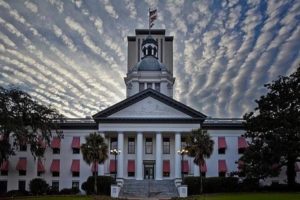 Lawmakers moved forward in the sixth week of the session on several bills related to school choice. Here is a brief recap.
Lawmakers moved forward in the sixth week of the session on several bills related to school choice. Here is a brief recap.
The House Ways and Means Committee approved PCB WMC 19-02, a tax package bill that includes a provision to require school districts to share tax referendum revenues with charter schools. Voters in eight Florida counties had approved in November extra taxes for public schools. Four of the counties made formal decisions prior to the election not to share the revenue from tax increases with charter schools.
Supporters of the charter provision argued this week the new legislation is needed to “clarify” legal uncertainty surrounding the sharing of tax revenues. The legislation would require districts starting in the next budget year to give charter schools equitable funding. Districts that fail to comply could be subject to a reduction in state funding equal to the amount they withhold from charters.
Read more here.
The House Education Committee passed HB 401, a bill that would allow teachers and students to focus on mastery of grade-level skills rather than grades. The bill would expand an existing “competency-based” pilot program to any school district that wants to participate. The program allows students to earn credits based on mastery of content and skills regardless of how much time they spend in the classroom.
The bill’s sponsor, Rep. Nick DiCeglie (R-Indian Rocks Beach), said it will allow educators to “meet students’ unique, strengths, interests and needs, while allowing students to play a greater role in their learning.”
Read more here.
The Senate cleared SB 1444, while the House passed HB 1127, similar legislation that would create a “disqualification list” of individuals whose educator certificates have been revoked by the state. The list would be maintained by the Department of Education and would include those whose educator certificates have been permanently revoked by the Education Practices Commission as well as private school owners or operators who have been permanently disqualified from participation in a state scholarship program by the Department.
The list, which would be required of all public schools, including charters and those that accept students who participate in a state scholarship program, would expose individuals who may not be subject to extensive criminal background checks. Among those screened for previous misconduct would be potential employees, contract employees, school board members or school owners.
Also this week, the House advanced an extensive school-choice bill, HB 7095, that would allow Florida’s Schools of Hope to operate in hundreds of communities.
While a Hope school has not yet opened in Florida, two companies have signaled intent to launch campuses in Miami and Tampa. Under the proposal, about 250 Florida communities could be candidates for new charter schools, expanding the current 47.
The bill also revises the definition of “persistently low-performing schools” to include schools that have a grade below a C for three of five years.


